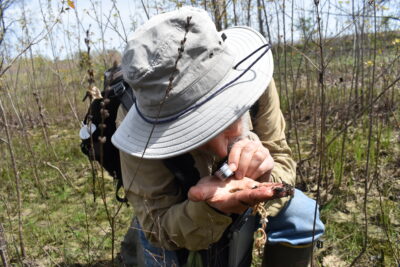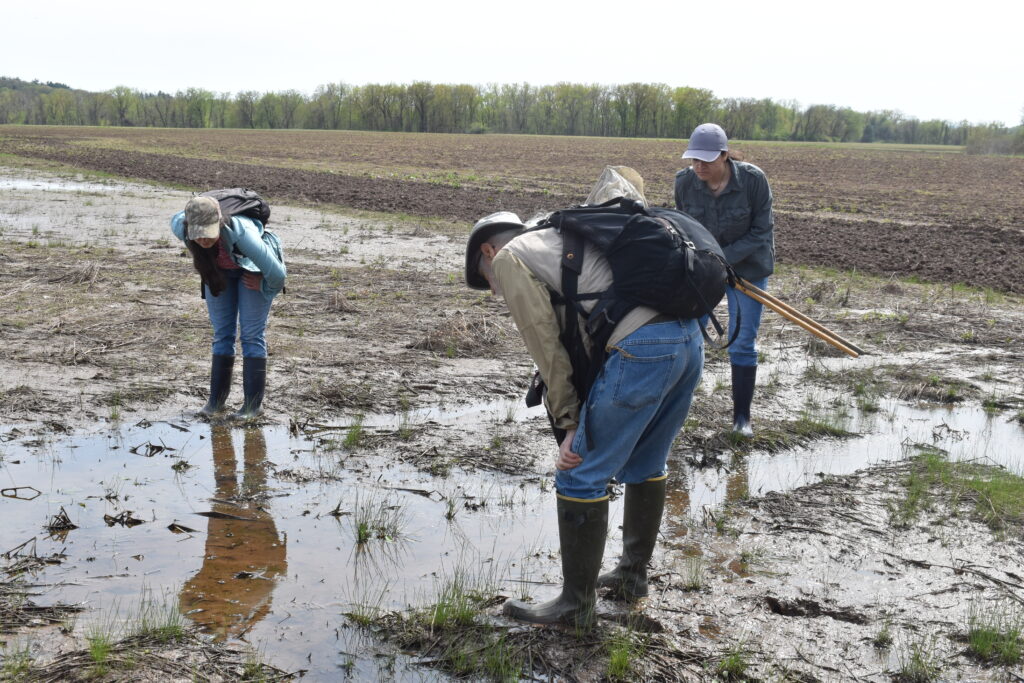Researcher Erik Kiviat discovers an ecosystem within water pools
To many people, a puddle or pool of murky or muddy water might be seen as a nuisance. To Erik Kiviat the water pools are biological gold.

A wetland scientist, Kiviat is the executive director of Hudsonia and a member of the Applied Farmscape Ecology Research Collective. Over the past year, he been collecting samples from the small, seasonal pools created by everything from pick-up trucks to Mother Nature. It could be a gravel pit that has filled with water from rain or a soft patch of field that has become a pseudo swamp. On a recent weekday, they were several palm-sized pools of water in a drying temporary pond on Farm Hub land just off Route 209.
Kiviat dips his hand into the pool, cups his palm to preserve the water, and looks through a portable magnifying glass. “See there, I think they are mosquitoes,” he says. Tiny black mosquito larvae wiggle in his palm.
He jots the details down and places the insects in a vial of alcohol, which preserves them for laboratory study.

To date he’s sampled more than 20 bodies of water, the majority of them in Ulster County, to identify small insects, crustaceans, mollusks, and other invertebrates. Erik and his colleagues have found well over 100 types of invertebrates in these temporary pools. The variety of species found has included clam shrimp, flatworms, beetles, and yes, mosquitoes. The pools also are a nursery for the tadpoles of toads and frogs. In the delicate balance between ecology and farming, the scientist notes that the pools of water provide a habitat for these life forms. They should not be immediately filled in as they support many kinds of wildlife including animals that live in no other kind of habitat.
“Small pools that fill after heavy rains and dry down in summer are one of the least understood kinds of aquatic habitats. These pools are the home of literally hundreds of kinds of small animals. Besides invertebrates, the pools at the Farm Hub produce large numbers of toads which might even be beneficial to the farm by consuming insects in the crop fields,” Kiviat says.
-Amy Wu
